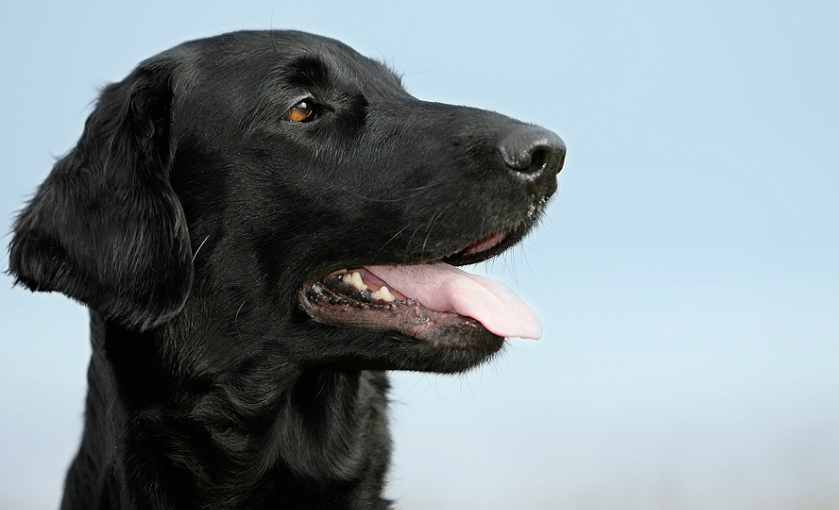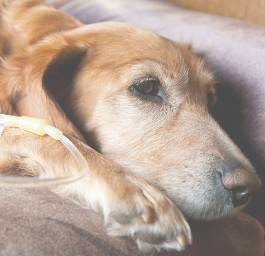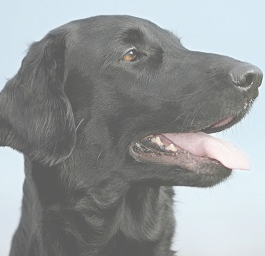Canine Cancer

AKC Canine Health Foundation Canine Cancer Research
Since 1995, CHF and its donors have funded over $17.7 million in canine cancer research. These 263 research grants have helped scientists study cancer at the cellular level, providing breakthroughs that allow veterinarians to diagnose cancer earlier and treat it more effectively. CHF-funded research also has a One Health impact, extending beyond dogs with an application to human cancer diagnosis and treatment.
Canine cancer research is a major concern of dog owners and veterinary professionals. Typically, about one quarter of CHF’s grant funding concerns various types of canine cancers.
View our Cancer Research Portfolio
Resources
Canine Cancer Articles
Malignant Histiocytosis: Looking for a Cure December 1, 2010
The median survival time for malignant histiocytosis is only 2-4 months. Traditional cancer treatments such as radiation and surgery are generally ineffective in dogs with MH. There is hope for the future; however, as preliminary studies of a new form of treatment have shown some real promise.
Personalizing Cancer September 4, 2010
With a $12,000, start-up grant from the AKC Canine Health Foundation, researchers at Van Andel Research Institute soon identified regions of DNA associated with hemangiosarcoma in Clumber Spaniels. Little did they know that their project would become part of a larger effort involving academic, industry and government organizations and that it would result in a revolutionary move to provide better cancer treatment not only for dogs but for people, too.
Transitional Cell Carcinoma: Once Considered Incurable, Now Highly Treatable August 2, 2010
In many respects, Frankie was a lucky dog. Just a few years ago Frankie’s diagnosis of transitional cell carcinoma (TCC) would have been a death sentence. Fortunately for Frankie and other dogs, times are changing. The past decade has seen great progress in managing TCC.
Luna Shines Her Light July 12, 2010
Shortly after Sandra Thomas' dog Luna was diagnosed with hemangiosarcoma, Thomas learned through the AKC Canine Health Foundation (CHF) about the work of Dr.Matthew Breen at North Carolina State University’s College of Veterinary Medicine. Determined to find a way for Luna to live on in some fashion, Thomas signed on to participate in Breen's research.
Van Andel Research Institute Launches New Canine Cancer Studies June 16, 2010
The Van Andel Research Institute has received a "Grand Opportunities" grant from the National Institutes of Health to expand its canine cancer studies and they are launching a new center of excellence in canine genetics, starting with the Canine Hereditary Cancer Consortium (CHCC)
| Items 51 - 15 of 15 | Previous |
Resources Available for Download
Webinars
Cancer Attributable to Infection?
Original air date: June 8, 2022
Speaker: Edward B. Breitschwerdt, DVM, DACVIM
May 2022 Canine Cancer Webinar Series
Available on a pay per view basis through the AKC Canine College.
Predicting Lymphoma in Dogs, Presented by Dr. Daniel Promislow
Luteinizing Hormone Receptor Activation in Lymphoma and Hemangiosarcoma, Presented by Dr. Michelle Kutzler
Toward Curative Outcomes in Canine Hemangiosarcoma, Presented by Dr. Chand Khanna
LIVE Panel Q&A Session, Presented by Drs. Promislow, Kutzler, and Khanna
A Novel Non-Surgical Option to Preserve Limbs in Canine Osteosarcoma
Original air date: May 25, 2021
Speaker: Joanne Tuohy, DVM, PhD, DACVS
Recent Advances in Cancer Immunotherapy
Original air date: May 2020
Speaker: Steven Dow, DVM, PhD, Diplomate ACVIM (Oncology)
Update on Canine Hemangiosarcoma
Original air date: May 2017
Speaker: Douglas H. Thamm, VMD, DACVIM (Oncology)
Cancer Immunotherapy: Basic Concepts and Strategies for Improving Treatment Outcomes
Original air date: October 2016
Speaker: Douglas H. Thamm, VMD, DACVIM (Oncology)
Lymphoma: The State of This Disease in Dogs and How Epigenetics May Open Future Doors
Original air date: June 2016
Speaker: Jeffrey M. Bryan, DVM, MS, PhD, DACVIM (Oncology)
Podcasts
Tracie Hotchner Pets podcast spoke with CHF Board Chairman, Dr. Charles Garvin, about CHF-funded grants studying innovative new ways to detect and treat cancer.
The Dog Cancer Answers podcast spoke with AKC Chief Veterinary Officer Dr. Jerry Klein about How to Choose a Dog Breeder. Listen for ways to increase the odds of having a healthy puppy, including the importance of AKC Canine Health Foundation funded research.
How You Can Help
Your support means more studies exploring improved diagnostics and new treatment strategies for canine cancer.
Help Future Generations of Dogs
Participate in canine health research by providing samples or by enrolling in a clinical trial. Samples are needed from healthy dogs and dogs affected by specific diseases.







